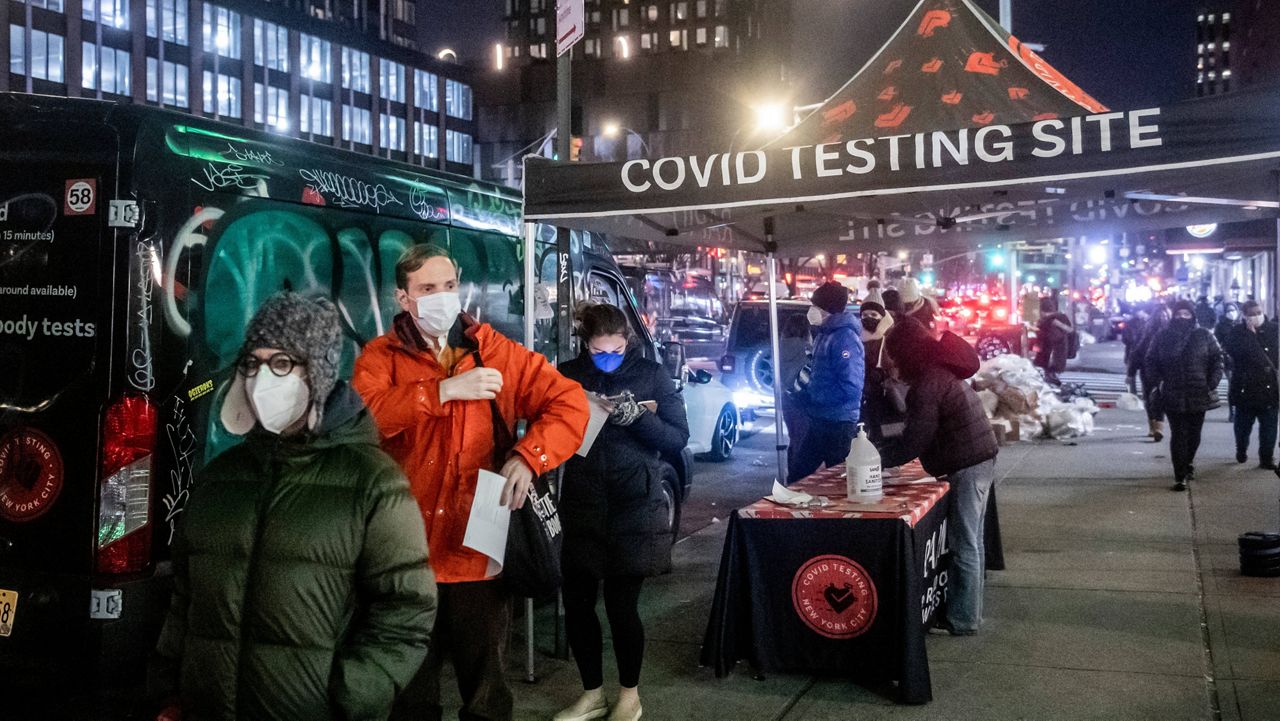Imagine a COVID-19 vaccine that can protect against all variants, eliminating the questions inoculated people ask about how well they’re protected each time a new version of the virus surfaces.
Scientists at the Walter Reed Army Institute of Research may be closing in on just that.
What You Need To Know
- Scientists at the Walter Reed Army Institute of Research are expected to announce in the coming weeks that they have developed a vaccine that is effective against COVID-19 and all its variants as well as previous SARS viruses
- While other vaccine makers focused last year on stopping the original version of COVID-19, the Army lab channeled its efforts into creating a pan-coronavirus vaccine
- The spike ferritin nanoparticle COVID-19 vaccine, or SpFN, uses a soccer ball-shaped protein with 24 faces, where the spikes of multiple coronavirus strains can be attached
- The vaccine must still undergo Phase 2 and 3 trials before the Army lab can seek emergency use authorization from the Food and Drug Administration
The researchers are expected to announce in the coming weeks that they have developed a vaccine that is effective against COVID-19 and all its variants as well as previous SARS viruses, according to Defense One, a website covering U.S. defense and national security news.
While other vaccine makers focused last year on stopping the original version of COVID-19, the Army lab channeled its efforts into creating a pan-coronavirus vaccine.
The news of a potential vaccine comes as infections from the omicron variant are surging in the United States. On Tuesday, the Centers for Disease Control and Prevention said omicron now accounts for 73% of new infections in the U.S.
“The accelerating emergence of human coronaviruses throughout the past two decades and the rise of SARS-CoV-2 (COVID-19) variants, including most recently Omicron, underscore the continued need for next-generation preemptive vaccines that confer broad protection against coronavirus diseases,” Dr. Kayvon Modjarrad, director of the Emerging Infectious Diseases Branch at Walter Reed Army Institute of Research and co-inventor of the vaccine, said in a news release.
The spike ferritin nanoparticle COVID-19 vaccine, or SpFN, uses a soccer ball-shaped protein with 24 faces, where the spikes of multiple coronavirus strains can be attached.
A study of the spike ferritin nanoparticle COVID-19 vaccine, or SpFN, on primates successfully elicited neutralizing antibodies against the original version of COVID-19, variants of concern and SARS-CoV-1.
“This vaccine stands out in the COVID-19 vaccine landscape,” Modjarrad said. “The repetitive and ordered display of the coronavirus spike protein on a multi-faced nanoparticle may stimulate immunity in such a way as to translate into significantly broader protection.”
Phase 1 human trials began in April, and interim data is expected to be released this month. The vaccine must still undergo Phase 2 and 3 trials before the Army lab can seek emergency use authorization from the Food and Drug Administration.
The vaccine’s human trials took longer than anticipated because the lab needed to test the vaccine on people who had not been vaccinated already and had not been infected by COVID-19, Defense One reported. More than 241 million Americans have received at least one vaccine dose, and more than 51 million have been infected by the virus.
Researchers are now trying to determine how the SpFN vaccine performs in people who have been inoculated with other vaccines or who have previously been infected by COVID-19.



